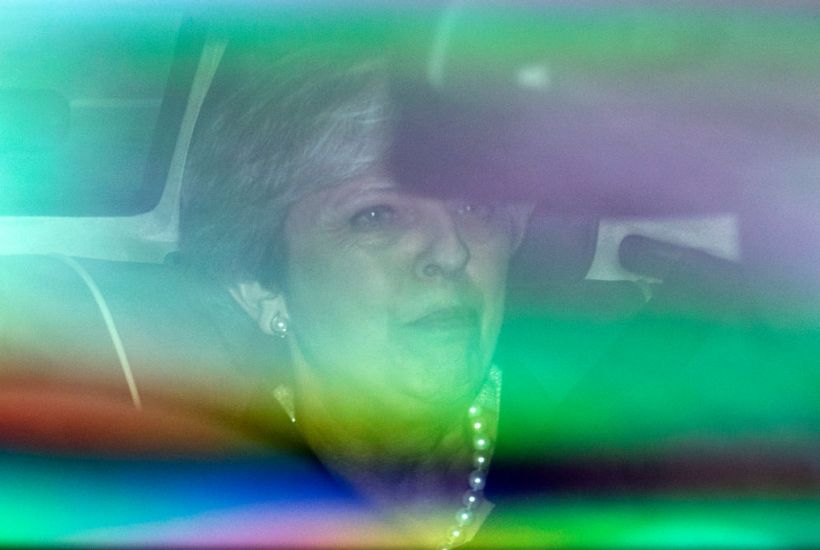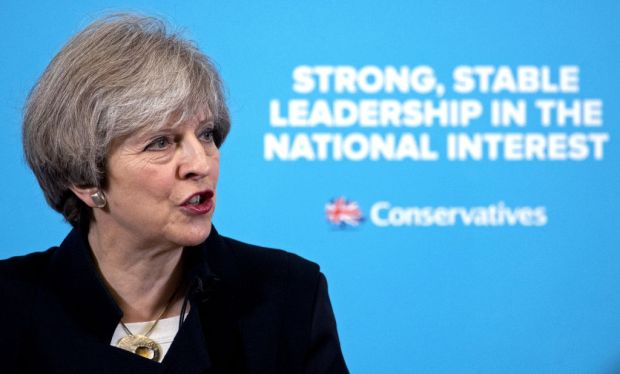There’s still a whole lot of libertarian grand-standing going on about the British general election, much of it predicated on generalities that are patently wrong. Let’s set the record straight.
Basically, there are three economic heresies in circulation on the Anglophone Right that are threatening the dominance of free-market neoliberalism:
- One-nationism. This is Theresa May’s great offence. In the UK, one-nationism is also called Tory socialism and is a close relative of European Christian democracy. The former is actually rather appropriate, but not for the reason neoliberals think. Of all these heresies, Mrs May’s comes the closest to the real theoretical objective of socialism, which is the democratisation of the means of production. Hence her campaign manifesto, which centred on the creation of eleven new ‘workers’ rights’.
Matthew Lesh and Tim Andrews – both of whom I like very much – didn’t fully grasp this when they blamed Mrs May’s non-victory on her economic views. In fact, Mrs May’s poll numbers were at their highest around the time the Tories’ manifesto was published. (Rod Liddle’s explanation for this surge is excellent.) We can discuss the reason they fell, but it had nothing to do with her Disraelian resurgence. There’s ample reason to believe ‘Mayism’ is in fact quite popular among the British people.
That’s not a fashionable thing to say, I know – but it’s true. Maybe that still counts for something.
- Protectionism. This is the heresy of Donald Trump and Pauline Hanson. Like One-nationists, they’re primarily concerned with giving the working-class a leg up; like neoliberals, they think corporate restructuring is either unjust or unproductive. The aim of protectionism isn’t necessarily to make the economy more equitable, but simply to maintain a base level of employment.
Protectionism is a broad church, and its exponents recommend various levels of government involvement in the domestic economy. Trump, for instance, has gone to great lengths to roll back regulations on Wall Street; Hanson’s in favour of creating a national bank.
Needless to say, the American people were quite receptive to Trump’s protectionism. And though Hanson’s support seems to have plateaued, she’s now running close to the Greens. Not a bad draw, that.
- Outright progressivism. Here we come to Turnbull and ScoMo. The Liberals’ last budget had nothing to do with democratising the economy or cutting unemployment. It was just plain ol’ wealth redistribution and class envy. Punitive levies on Big Finance, Gonski 2.0, ‘the most ambitious infrastructure spending program in a generation’… enough taxing and spending to render the Labor Party virtually irrelevant.
Two sub-clauses here. (a) If one-nationism looks like socialism in theory, progressivism looks like socialism in practice. That’s a distinction with a colossal difference. (b) The Liberals’ poll numbers fell after the budget – which, again, is exactly the opposite of what happened with Mrs May and the Tories.
None of which is meant to give credence to One-nationism or protectionism. That’s entirely beside the point. Neoliberals should simply recognise that there’s a broad range of pro-government movements taking root in the Right and that conservatively-minded electorates respond to them with varying levels of enthusiasm. It’s no use pretending more government = vaguely socialist = bad election results.
There may have been a time when laissez-faire-ists could win the high ground simply by invoking the ‘Invisible Hand’. If so, it’s long gone. Conservative voters are increasingly sceptical of multinational corporations. They value patriotism and solidarity as well as liberty and self-reliance. Neoliberals need to prove the markets can deliver all these better than the state in all of its forms. Dismissing their opponents as Leftists just won’t cut it.
For what it’s worth, I believe they can win the battle of ideas. But if the last year or so is anything to go by, it’s dubious whether they’ll even bother trying. Remember, guys: narratives, not proclamations.
Got something to add? Join the discussion and comment below.
Got something to add? Join the discussion and comment below.
Get 10 issues for just $10
Subscribe to The Spectator Australia today for the next 10 magazine issues, plus full online access, for just $10.


























Comments
Don't miss out
Join the conversation with other Spectator Australia readers. Subscribe to leave a comment.
SUBSCRIBEAlready a subscriber? Log in